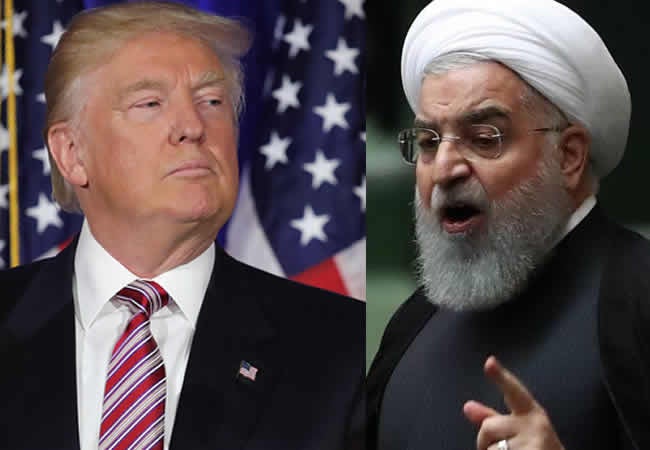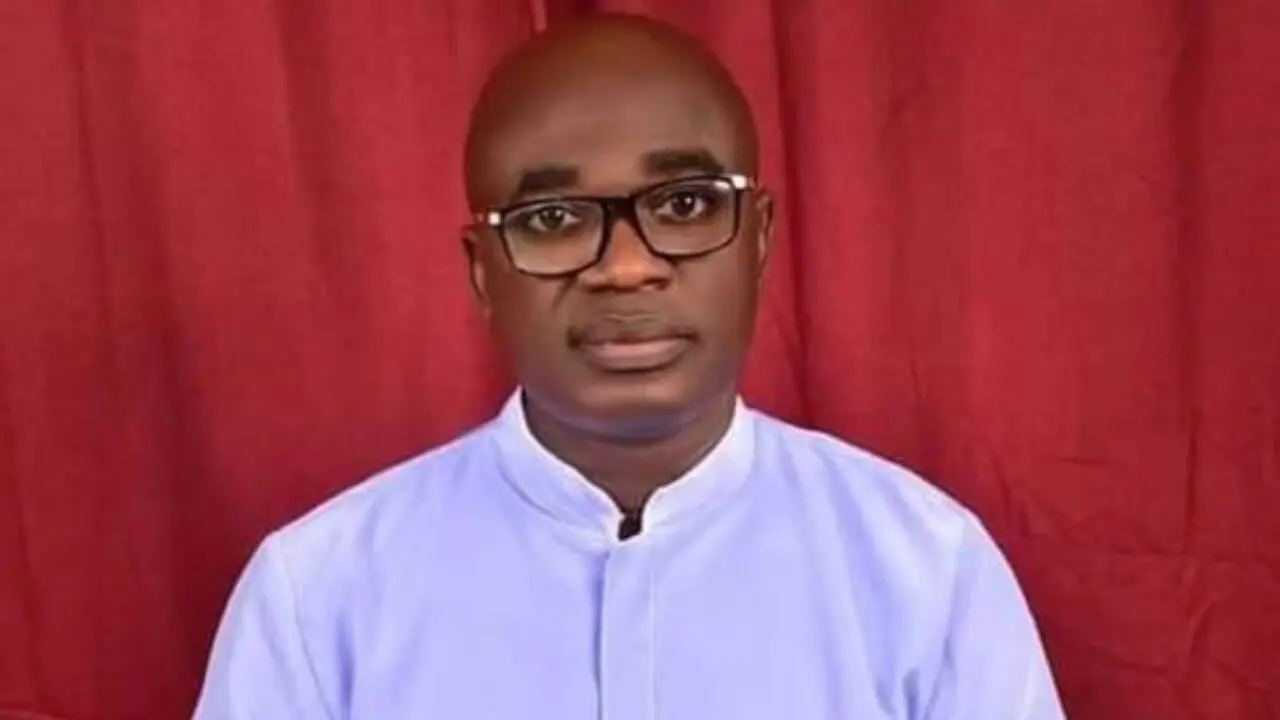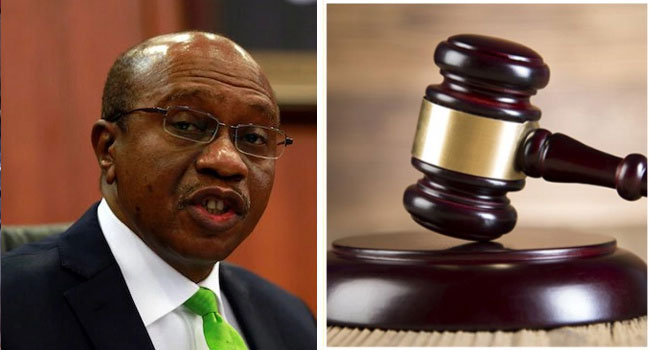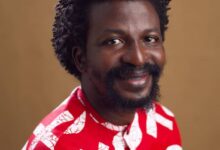Shouldn’t we know the truth? By Rotimi Fashakin
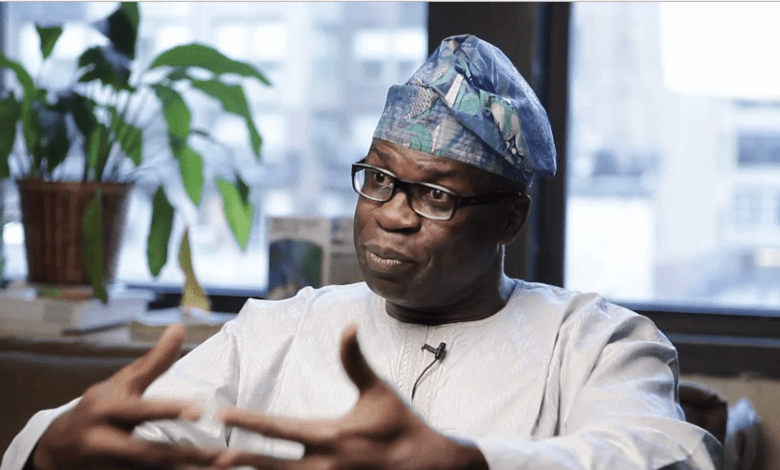
Some days ago, I watched the interview granted the Arise Television trio by the Afenifere leader, Chief Ayo Adebanjo. It was a no-holds-barred one for the Sage. He stretched his memory to the day Pastor Tunde Bakare brought the late Comrade Yinka Odumakin to his house. Before that meeting, the late Odumakin had shown him unimaginable hostility with the torrential vitriol often rained on him in his articles.
The late Yinka Odumakin was in the Asiwaju Bola Tinubu camp in the defunct Alliance for Democracy (AD) against the mainstream Afenifere group. So, what went amiss? We knew that in the beginning in 1998 it was not so. It was true that the AD leaders showed their preference for Senator Bola Tinubu regardless of the general belief that the late Mr Funso Williams won the primary election of the party.

Tinubu’s pro-democracy credentials were too intimidating to be ignored. Whilst Late Mr Williams served as a commissioner in Lagos state (during the General Sani Abacha era), Senator Tinubu was exiled with the diaspora wing of the defunct National Democratic Coalition (NADECO). What would seem to be the simmering crisis of the AD predated 2003. The seed of the imbroglio was planted in 1998 when AD/Afenifere leaders chose between the late Chief Bola Ige and Chief Olu Falae. Against all reasonable predictions, the younger and less experienced Chief Falae won. In a recent interview, this is what Senator Femi Okunrounmu, Chairman of Presidential Advisory Committee on the 2014 National Conference, said about that electoral process at De Rovan’s hotel in Ibadan.
“We had a 23-man Electoral College, which comprised the eight chairmen of AD from all six Yoruba states and Kwara and Kogi states. It also consisted of the six newly elected governors of Yoruba states because we didn’t win Kogi and Kwara. We also had nine elders selected across Yoruba land, those that have been part of the party from the days of Action Group (AG). They are Alhaji Hassan Fasinro from Lagos, Chiefs Solanke Onasanya and Jonathan Odebiyi from the Ogun States; Papa Emmanuel Alayande from Oyo and Justice Adewale Thompson from Oyo and Professor Bolaji Akinyemi from Osuntuyi. From Ondo, we had Alhaji Adekeye. From Ekiti, we had Papa Ayo Fasanmi and the late Dr Aina, who was the deputy to late former governor Adekunle Ajasin. 23 people constituted the Electoral College. The chairman of the college was Pa Emmanuel Alayande, Justice Adewale Thompson conducted the swearing-in ceremony. We had our voting by secret ballot and to my surprise, Falae won the election.”
It was reported that, before the election in Ibadan, it was an overconfident Chief Ige who travelled to the UK because, according to him, “the election was already in the bag!”
But this electoral outcome was the manifestation of the crisis of confidence that existed within the Afenifere fold. Whilst the Abacha junta held sway, it was generally believed, at the top echelon of the group, that Chief Ige enjoyed a cosy relationship with the Abacha regime, regardless of not being a cabinet member. It was part of the allegation against the late Chief Ige that, whilst the Afenifere members were hounded by the secret service for the meeting held at the Owo country home of the leader and former governor of Ondo State, Chief Michael Adekunle Ajasin, he was not at the vicinity of the meeting. So, it was not a cohesive house of the progressives in Yoruba land that contended for the highest political office in the land in 1999. Indeed, notable figures like the former Lagos state governor, Late Alhaji Lateef Kayode Jakande, and the former Director of Organisation in the defunct Unity Party of Nigeria, Chief Ebenezer Babatope, had been ostracized for their part as cabinet ministers of the Abacha government. Quite expectedly, the outcome of the de Rovan’s election laid the foundation of the intractable crisis in the Afenifere group. Chief Ige saw it as a cold, traitorous act by his political associates of five decades. He was reputed to have drafted the constitution of the Alliance for Democracy (AD) in 1998. His dissatisfaction with this shameful deflation of his political ego led to the cleavage of the AD/Afenifere. He enjoyed the support of five of the six elected governors of AD in South West: Chief Olusegun Osoba (Ogun), Senator Bola Tinubu (Lagos), Alhaji Lam Adeshina (Oyo) and Chief Bisi Akande (Osun). Chief Adebayo Adefarati (Ondo) stuck with the core Afenifere group, led by the late Chief Abraham Adesanya.
Unbeknownst to many, what exacerbated the crisis and made it intractable was when AD/ Afenifere decided to join Chief Olusegun Obasanjo’s government in 1999. Given his dismal failure in the Presidential election of 1999 in the South West, the wily General sought to ingratiate himself to the political consciousness of the Yoruba people in the South West. He knew that therein laid his future political life. As is proverbially postulated, “bring your friends to close, but your enemies closer”, chief Obasanjo (as he prefers to be addressed!) offered two ministerial positions to the Afenifere group. Against all the preachments of Awoism, the AD/Afenifere not only swallowed the bait, but the two persons (late chief Adesanya and late Chief Ige), sitting at the apogee of the leadership of the group, divided the spoils between themselves; whilst chief Ige was made the Minister for Power and later the Minister of Justice/Attorney General, Chief Adesanya relinquished his slot for his daughter! Undoubtedly, this show of indiscretion and total abandonment of the ethos of the political ideals of the late sage, Chief Obafemi Awolowo, proved to be the Achilles’ heels that hurt the group so badly and rendered it politically impotent.
So, how did late chief Awolowo handle the same offer in the past? In 1979, after the Supreme Court, led by the late Justice Atanda Fatayi-Williams, affirmed the election of late Alhaji Shehu Shagari as President and subsequent swearing-in, he offered ministerial positions to the political parties that contested the presidential election with his party, the National Party of Nigeria (NPN). Whilst Dr Nnamdi Azikiwe’s Nigeria People’s Party (NPP) sent names like Mr Paul Unogo and Professor Ishaya Audu, Chief Obafemi Awolowo’s Unity Party of Nigeria (UPN) rebuffed the idea. The late sage reasoned that the Presidential system, as opposed to the parliamentary system of government, is a zero-sum affair; the party that wins an election should just form its government and deliver to the electorate based on the campaign promises. What Chief Awolowo did not tell us was that such an offer is a carefully woven gambit by the ruling party to coalesce the opposition into itself. The late sage was later vindicated in that when things went sour between NPP and NPN (I remember that late President Shagari pejoratively referred to Dr Nnamdi Azikiwe as a political prostitute!), the NPP ordered his men in Shagari’s cabinet to leave, they refused! At that time, Professor Ishaya Audu was the Foreign Affairs minister.
So, in 1999, the AD/Afenifere leaders sharply deviated from the political path the respected leader and sage, Chief Obafemi Awolowo, had set for them. So, when Action Congress (and later Action Congress of Nigeria) broke ranks from Alliance for Democracy (AD), it was just a manifestation of a downward spiralling infra-dig.
In the interview, Chief Ayo Adebanjo harped on the 1999 constitution as the only problem of Nigeria. Indeed, many commentators have sheepishly latched on to this sentiment. I do not share this sentiment. Perhaps, we should ask ourselves quite pointedly, which constitution – in the evolution of Man – is a perfect document? Despite the rigorous Philadelphia convention of 1787 – which led to the draft constitution – the body of statute bequeathed to that Nation in 1789 was so imperfect that it did not give voting rights to women (of all races!). The voting right for women came with the 19th amendment in 1920. So, think about it, that constitution had been in operation for over a century before voting rights for women was incorporated into it. The truth is, that constitution had its 27th amendment in 1992. What about Nigeria? We had the constituent assembly and constitution drafting committee as precursors for the preparation of the 1979 constitution, in readiness for the change from military to a democratic dispensation. The imperfection of the statutory document started to rear its ugly head immediately with the dispute arising from the Presidential election. Some analysts reasoned that the Constitution Drafting Committee (CDC) – which arguably had as members the most celebrated constitutional lawyers in the land – could not foresee the potential crisis from a provision requesting two-thirds in a country with a 19-state structure! In the UK, the Magna Carta and later the 1688 Bill of rights presented the opportunity to re-assess the constitutional synergy between the Crown, Parliament and the Courts. At that point, supremacy was conferred on the Parliament. Though there are still vestiges of exercised and exercisable prerogative powers, the case laws have straightened things and continue to chart the delineation of these powers. In Attorney-General v De Keyser’s Royal Hotel Ltd [1920] AC 508, the House of Lords held that it follows from the supremacy of Parliament that if a scheme is enacted which overlaps with a prerogative power, then the statutory scheme should take precedence over the prerogative of power. So, as can be seen, improvements in the law in any clime are done through the common law and the amendments to the statutes. There is no precedence of any country where citizens throw up their hands in the air that their progress is stultified by the extant statutory arrangement. What is done in established climes is to change an outmoded piece of legislation!
In the said interview, Chief Adebanjo also asserted that it is either restructuring or no election in 2023. I agree that there are areas of socio-political arrangement that need tweaking as a matter of urgency. For instance, it is reported that Kano and Lagos’s states had 20 Local governments in 1967. In 2021, whilst Lagos still has 20 Local Government Areas attached to it in the constitution (as a basis of revenue sharing), Kano has 44 Local Government Areas, despite Jigawa (with 27 local government areas) already carved out of its land. Is population density no longer the basis for the creation of local government areas? So, this is an area of restructuring. Quite recently, I read both Speaker of the House of Representatives, Mr Femi Gbajabiamila, and the Senate President, Dr Ahmad Hassan, are already conferring on a major constitutional amendment to move Prisons from the exclusive list to the concurrent list to enable states to develop their prisons service as they deem fit. This, for me, should be encouraged.
However, what I do not agree with Chief Adebanjo’s idea about restructuring is waiting for one ‘big bang’ event called a sovereign national conference where a new ‘faultless’ constitution shall be developed and all Nigerian problems shall vanish away! I do not agree with this because it is utopian. There is no precedence of it in modern history. A Nation evolves by the incremental changes to its Law and, inexorably, the governance principles.
We may holler about restructuring as much as we want, when we (as citizens) refuse to restructure our mindset and set values, all shall become egregious vanity.
If we still harbour greed and selfishness, we cannot suddenly expect Nigeria to be transformed into that country of our collective dream.
Succinctly put, whatever change we want to see in Nigeria must begin with us.
God bless Nigeria.
*Engr. Rotimi Fashakin is a Fellow of the Nigerian Society of Engineers (FNSE).


